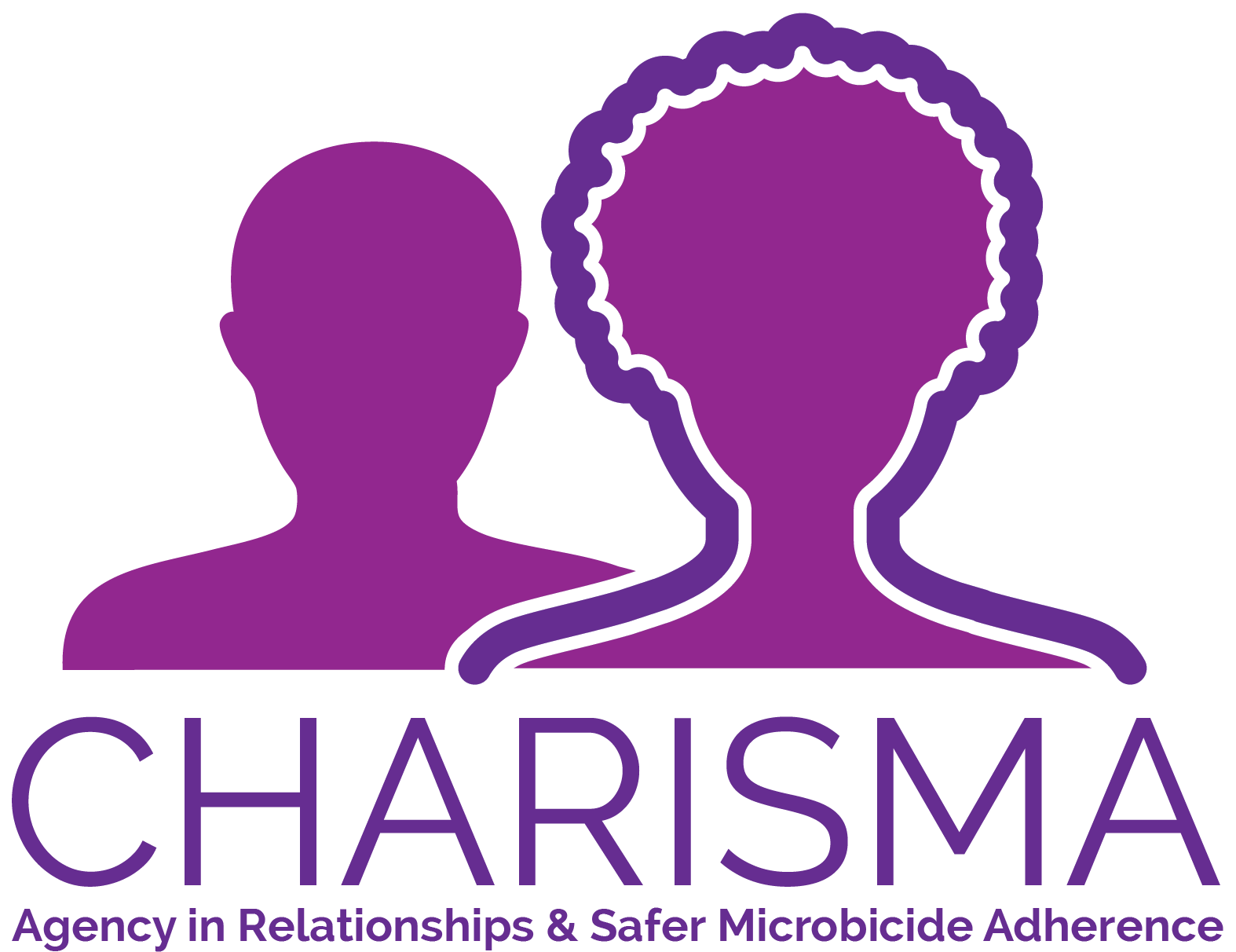CHARISMA supports efforts to: increase women’s agency to safely use ARV-based HIV prevention, to engage male partners in HIV prevention, and to overcome harmful gender norms and reduce intimate partner violence (IPV).
- Clinic-based intervention launched.
- Community-based intervention continues.
- Intervention evaluations and reporting planned.
Clinic-based intervention launched. CHARISMA received Wits RHI ethics approval to initiate the clinic-based component of the intervention into the HOPE (MTN-025) open-label dapivirine ring study at the Wits RHI Hillbrow site. Now, as participants are enrolled in HOPE, they are administered the Social Benefits-Harms Tool (SBHT) to determine their level of partner support, which helps identify which modules staff use to counsel women as they navigate ring use. To certify lay counselors on CHARISMA intervention techniques prior to initiation, the team conducted mock counseling sessions between trainers and lay counselors-in-training. Based on mock interview assessments, counselors achieved certification to use the CHARISMA counseling modules.
Community-based intervention continues. Sonke Gender Justice is continuing CHARISMA’s community-based intervention, which aims to reduce intimate partner violence (IPV) and increase men’s awareness, acceptance, and willingness to support their partners’ consistent use of microbicides. Sonke utilized multi-day workshops with male community members to initiate community action teams (CATs) in two locations with the highest proportion of HOPE participants in Johannesburg: Hillbrow and Soweto. The intervention now involves these teams by holding regular CAT meetings to prioritize and plan community-based activities. Sonke staff, with the help of CAT team members, hold informal group dialogues, tavern dialogues, soccer tournaments, and door-to-door outreach in the communities.
Intervention evaluations and reporting planned. The team is planning the interim evaluation of the clinic- and community-based components of the CHARISMA intervention and is assessing feasible scale-up options at additional HOPE sites and within oral PrEP demonstration projects. Currently, CHARISMA staff are conducting in-depth analyses of the qualitative formative data used to develop the intervention and will write manuscripts to report the findings.
No Responses
Leave a Reply

